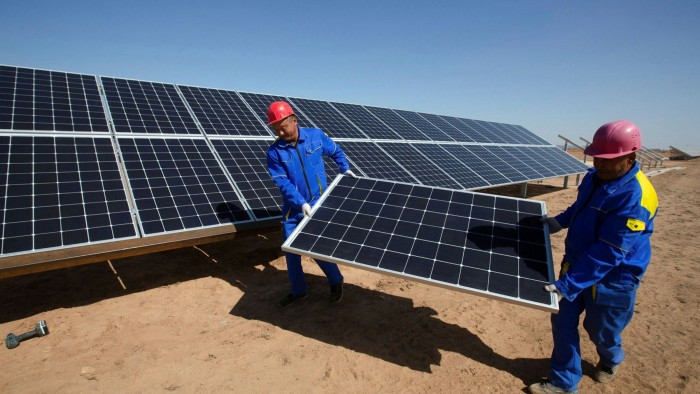MSCI ESG indices’ outperformance needs scrutiny, experts caution

Simply sign up to the Exchange traded funds myFT Digest -- delivered directly to your inbox.
Interested in ETFs?
Visit our ETF Hub for investor news and education, market updates and analysis and easy-to-use tools to help you select the right ETFs.
A suite of MSCI environmental, social and governance indices outperformed their non-ESG parent despite surging energy stock prices last year, but analysts say the findings deserve careful scrutiny.
Researchers from MSCI examined the performance of the MSCI All Country World Index, the provider’s flagship broad global equity index of more than 2,900 large- and mid-cap stocks, and compared performance with five ESG versions of the index.
All but one of the ESG indices, the MSCI ACWI ESG Focus index — designed to maximise exposure to positive ESG factors — outperformed in 2021. All five beat the parent benchmark over both three and five years (see table below).
The researchers noted that the ESG indices had higher weights than the parent index in semiconductors, which outperformed, and lower weights in airlines, aerospace and defence, which underperformed, compensating for losses from the lower exposure to oil and gas.
The main driver of returns in 2021 was stock selection, especially exposure to Microsoft, the researchers noted.
Kenneth Lamont, senior fund analyst for passive funds research at Morningstar, cautioned against reading too much into the data.
“As the report notes, Microsoft was the biggest single contributor to the active returns of most indices listed. The success of Microsoft’s cloud business was the main driver behind its stock performance. We can ask ourselves how related this is to its ESG credentials?”
MSCI ESG indices use a sector-inclusive methodology that selects companies with higher ESG ratings than their industry peers rather than excluding whole sectors. The five ESG indices had lower weightings to oil, gas and consumable fuels relative to the parent index with an average reduction in exposure of 0.92 percentage points. MSCI ACWI SRI had the lowest weighting to oil and gas with an exposure of minus 2.41 percentage points, the researchers said.
“When evaluating claims of short-term ESG outperformance we should retain a healthy scepticism, particularly when there is product to sell. We must ask ourselves, was it active ESG selection that can explain the results or are other factors at play?” Lamont said.
Patrick Wood Uribe, chief executive of Util, a specialist ESG data provider agreed. “It does feel very disingenuous to point to these ESG indices doing well when they are not doing well because of their ESG credentials,” he said.
Lamont added that while the underweighting of airlines and defence had provided a tailwind over 2021, it was “unclear if a persistent underweight in these sectors will be as good a bet in the coming 12 months”.
Wood Uribe said the findings illustrated how important it was to move beyond “blunt categories” in ESG labelling systems.
For example, he said, “is an oil and gas ‘ESG leader’ a company with the biggest renewables business? Or the best governance? Or the best assessment of its own environmental risks? Which of these is true, and in what measure?”
“We already have all the tools we need to provide investors with information that is clearer, more rigorous, more detailed, and more transparent, and it’s time we started using more of them,” Wood Uribe added.

Click here to visit the ETF Hub

Comments